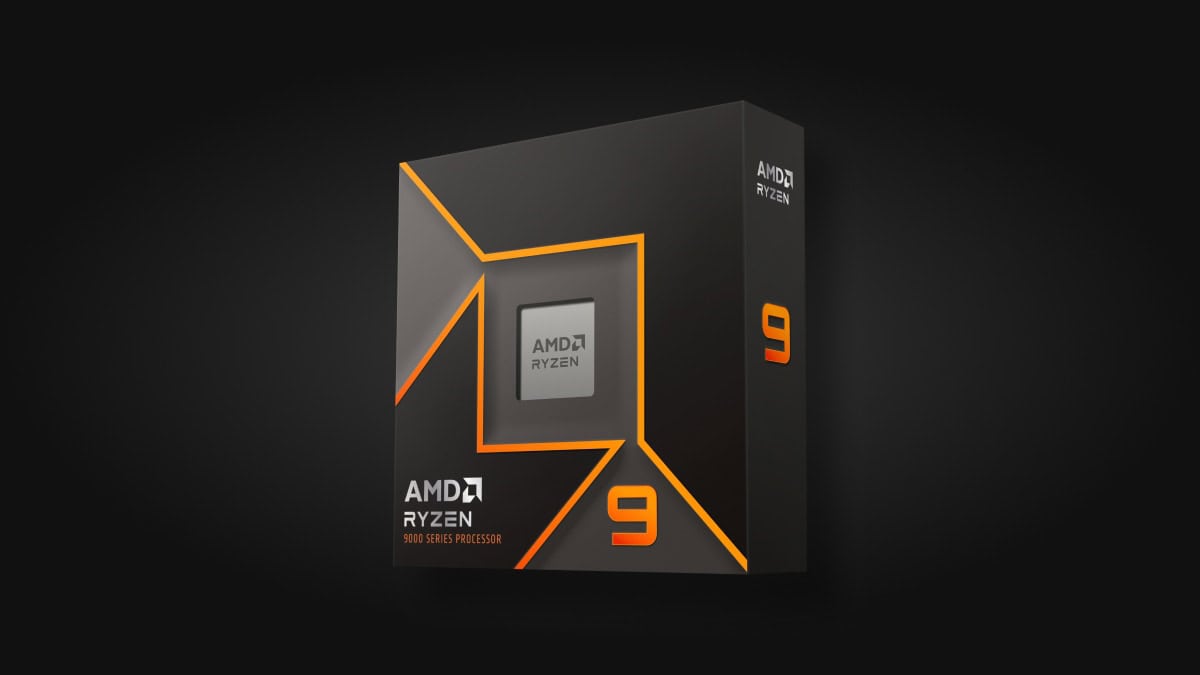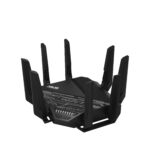AMD Ryzen desktop processors offer high performance for gaming and productivity tasks. These processors use advanced architecture to deliver fast speeds and efficient multitasking. The Ryzen 7 9800X3D stands out as one of the fastest gaming processors available, featuring AMD’s 3D V-Cache technology.
AMD’s processor lineup includes options for various needs and budgets. The Ryzen 5 series provides good value for mainstream users, while the Ryzen 9 series targets enthusiasts and professionals. Recent additions like the Ryzen 8000G series bring integrated graphics and AI capabilities to desktop PCs and the Ryzen 9000 series introduced Zen 5 to the desktop lineup.
Choosing the right Ryzen processor depends on your specific requirements. Gamers may prefer models with 3D V-Cache, while content creators benefit from higher core counts. AMD continues to innovate, pushing the boundaries of desktop processor performance.
In total, there have been 6 different series of AMD Ryzen “Zen” processor microarchitectures. They are:
- Zen 5
- Zen 4
- Zen 3
- Zen 2
- Zen+
- Zen
AMD Zen 5 Series Processors
The Zen 5 architecture, launched in 2024 with the Ryzen 9000 series, marks a significant leap forward in AMD’s processor technology. Built on a 4nm process, it boasts an average of 16% IPC improvement over its predecessor, Zen 4. This translates to faster processing speeds and enhanced efficiency. The initial lineup includes the Ryzen 5 9600X, Ryzen 7 9700X, Ryzen 9 9900X, and Ryzen 9 9950X, with Ryzen 9000X3D CPUs featuring 3D V-Cache technology planned for release in November 2024. These processors are designed for demanding tasks, offering users the highest level of desktop performance currently available.
| Model | Cores | Core Clock | Boost Clock | Microarchitecture | TDP |
| AMD Ryzen 5 9600X | 6 | 3.9 GHz | 5.4 GHz | Zen 5 | 65 W |
| AMD Ryzen 7 9700X | 8 | 3.8 GHz | 5.5 GHz | Zen 5 | 65 W |
| AMD Ryzen 7 9800X3D | 8 | 4.7 GHz | 5.2 GHz | Zen 5 | 120 W |
| AMD Ryzen 9 9900X | 12 | 4.4 GHz | 5.6 GHz | Zen 5 | 120 W |
| AMD Ryzen 9 9950X | 16 | 4.3 GHz | 5.7 GHz | Zen 5 | 170 W |
AMD Zen 4 Series Processors
The Zen 4 architecture, introduced in 2022 with the Ryzen 7000 series, brought with it a new platform, AM5, and support for DDR5 memory and PCIe 5.0. Built on a 5nm process, it offered a significant performance uplift over Zen 3, with increased clock speeds up to 5.7 GHz and improved power efficiency. This architecture powered processors like the Ryzen 5 7600X, Ryzen 7 7700X, and Ryzen 9 7950X, catering to gamers, content creators, and professionals alike. Zen 4 also saw the introduction of the X3D versions of these CPUs, utilizing 3D V-Cache technology for a substantial gaming performance boost.
| Model | Cores | Core Clock | Boost Clock | Microarchitecture | TDP |
| AMD Ryzen 5 7500F | 6 | 3.7 GHz | 5 GHz | Zen 4 | 65 W |
| AMD Ryzen 5 7600 | 6 | 3.8 GHz | 5.1 GHz | Zen 4 | 65 W |
| AMD Ryzen 5 7600X | 6 | 4.7 GHz | 5.3 GHz | Zen 4 | 105 W |
| AMD Ryzen 5 7600X3D | 6 | 4.1 GHz | 4.7 GHz | Zen 4 | 65 W |
| AMD Ryzen 5 8400F | 6 | 4.2 GHz | 4.7 GHz | Zen 4 | 65 W |
| AMD Ryzen 5 8500G | 6 | 4.1 GHz | 5 GHz | Zen 4 | 65 W |
| AMD Ryzen 5 8600G | 6 | 4.3 GHz | 5 GHz | Zen 4 | 65 W |
| AMD Ryzen 5 PRO 7645 | 6 | 3.8 GHz | 5.1 GHz | Zen 4 | 65 W |
| AMD Ryzen 7 7700 | 8 | 3.6 GHz | 5.3 GHz | Zen 4 | 65 W |
| AMD Ryzen 7 7700X | 8 | 4.5 GHz | 5.4 GHz | Zen 4 | 105 W |
| AMD Ryzen 7 7800X3D | 8 | 4.2 GHz | 5 GHz | Zen 4 | 120 W |
| AMD Ryzen 7 8700F | 8 | 4.1 GHz | 5 GHz | Zen 4 | 65 W |
| AMD Ryzen 7 8700G | 8 | 4.2 GHz | 5.1 GHz | Zen 4 | 65 W |
| AMD Ryzen 7 PRO 7745 | 8 | 3.8 GHz | 5.3 GHz | Zen 4 | 65 W |
| AMD Ryzen 9 7900 | 12 | 3.6 GHz | 5.4 GHz | Zen 4 | 65 W |
| AMD Ryzen 9 7900X | 12 | 4.7 GHz | 5.6 GHz | Zen 4 | 170 W |
| AMD Ryzen 9 7900X3D | 12 | 4.4 GHz | 5.6 GHz | Zen 4 | 120 W |
| AMD Ryzen 9 7950X | 16 | 4.5 GHz | 5.7 GHz | Zen 4 | 170 W |
| AMD Ryzen 9 7950X3D | 16 | 4.2 GHz | 5.7 GHz | Zen 4 | 120 W |
| AMD Ryzen 9 PRO 7945 | 12 | 3.7 GHz | 5.4 GHz | Zen 4 | 65 W |
AMD Zen 3 Series Processors
Launched in 2020 with the Ryzen 5000 series, the Zen 3 architecture refined the core design of its predecessors, resulting in a notable 19% IPC increase over Zen 2. This architecture continued to utilize the AM4 platform, maintaining compatibility with older motherboards. It powered popular CPUs like the Ryzen 5 5600X, Ryzen 7 5800X, and Ryzen 9 5900X, offering excellent performance in gaming and productivity tasks. Zen 3 also saw the introduction of “XT” refresh CPUs with slightly higher clock speeds.
| Model | Cores | Core Clock | Boost Clock | Microarchitecture | TDP |
| AMD Ryzen 5 5500 | 6 | 3.6 GHz | 4.2 GHz | Zen 3 | 65 W |
| AMD Ryzen 5 5500GT | 6 | 3.6 GHz | 4.4 GHz | Zen 3 | 65 W |
| AMD Ryzen 5 5600 | 6 | 3.5 GHz | 4.4 GHz | Zen 3 | 65 W |
| AMD Ryzen 5 5600G | 6 | 3.9 GHz | 4.4 GHz | Zen 3 | 65 W |
| AMD Ryzen 5 5600GT | 6 | 3.6 GHz | 4.6 GHz | Zen 3 | 65 W |
| AMD Ryzen 5 5600T | 6 | 3.5 GHz | 4.5 GHz | Zen 3 | 65 W |
| AMD Ryzen 5 5600X | 6 | 3.7 GHz | 4.6 GHz | Zen 3 | 65 W |
| AMD Ryzen 5 5600X3D | 6 | 3.3 GHz | 4.4 GHz | Zen 3 | 105 W |
| AMD Ryzen 5 5600XT | 6 | 3.7 GHz | 4.7 GHz | Zen 3 | 65 W |
| AMD Ryzen 7 5700 | 8 | 3.7 GHz | 4.6 GHz | Zen 3 | 65 W |
| AMD Ryzen 7 5700G | 8 | 3.8 GHz | 4.6 GHz | Zen 3 | 65 W |
| AMD Ryzen 7 5700X | 8 | 3.4 GHz | 4.6 GHz | Zen 3 | 65 W |
| AMD Ryzen 7 5700X3D | 8 | 3 GHz | 4.1 GHz | Zen 3 | 105 W |
| AMD Ryzen 7 5800X | 8 | 3.8 GHz | 4.7 GHz | Zen 3 | 105 W |
| AMD Ryzen 7 5800X3D | 8 | 3.4 GHz | 4.5 GHz | Zen 3 | 105 W |
| AMD Ryzen 7 5800XT | 8 | 3.8 GHz | 4.8 GHz | Zen 3 | 105 W |
| AMD Ryzen 9 5900X | 12 | 3.7 GHz | 4.8 GHz | Zen 3 | 105 W |
| AMD Ryzen 9 5900XT | 16 | 3.3 GHz | 4.8 GHz | Zen 3 | 105 W |
| AMD Ryzen 9 5950X | 16 | 3.4 GHz | 4.9 GHz | Zen 3 | 105 W |
AMD Zen 2 Series Processors
The Zen 2 architecture, released in 2019 with the Ryzen 3000 series, marked a major turning point for AMD. It introduced a chiplet design, separating the CPU cores and I/O die, which allowed for higher core counts and improved efficiency. Built on a 7nm process, it delivered a significant performance jump over Zen+, with CPUs like the Ryzen 5 3600, Ryzen 7 3700X, and Ryzen 9 3900X becoming popular choices for gamers and content creators.
| Model | Cores | Core Clock | Boost Clock | Microarchitecture | TDP |
| AMD Ryzen 3 3100 | 4 | 3.6 GHz | 3.9 GHz | Zen 2 | 65 W |
| AMD Ryzen 3 3300X | 4 | 3.8 GHz | 4.3 GHz | Zen 2 | 65 W |
| AMD Ryzen 3 4100 | 4 | 3.8 GHz | 4 GHz | Zen 2 | 65 W |
| AMD Ryzen 5 3500 | 6 | 3.6 GHz | 4.1 GHz | Zen 2 | 65 W |
| AMD Ryzen 5 3500X | 6 | 3.6 GHz | 4.1 GHz | Zen 2 | 65 W |
| AMD Ryzen 5 3600 | 6 | 3.6 GHz | 4.2 GHz | Zen 2 | 65 W |
| AMD Ryzen 5 3600X | 6 | 3.8 GHz | 4.4 GHz | Zen 2 | 95 W |
| AMD Ryzen 5 3600XT | 6 | 3.8 GHz | 4.5 GHz | Zen 2 | 95 W |
| AMD Ryzen 5 4500 | 6 | 3.6 GHz | 4.1 GHz | Zen 2 | 65 W |
| AMD Ryzen 5 4600G | 6 | 3.7 GHz | 4.2 GHz | Zen 2 | 65 W |
| AMD Ryzen 7 3700X | 8 | 3.6 GHz | 4.4 GHz | Zen 2 | 65 W |
| AMD Ryzen 7 3800X | 8 | 3.9 GHz | 4.5 GHz | Zen 2 | 105 W |
| AMD Ryzen 7 3800XT | 8 | 3.9 GHz | 4.7 GHz | Zen 2 | 105 W |
| AMD Ryzen 9 3900 | 12 | 3.1 GHz | | Zen 2 | 65 W |
| AMD Ryzen 9 3900X | 12 | 3.8 GHz | 4.6 GHz | Zen 2 | 105 W |
| AMD Ryzen 9 3900XT | 12 | 3.8 GHz | 4.7 GHz | Zen 2 | 105 W |
| AMD Ryzen 9 3950X | 16 | 3.5 GHz | 4.7 GHz | Zen 2 | 105 W |
AMD Zen+ Series Processors
Zen+, released in 2018 with the Ryzen 2000 series, was a refinement of the original Zen architecture. Built on a 12nm process, it offered modest performance improvements over its predecessor, with slightly higher clock speeds and better memory support. CPUs like the Ryzen 5 2600X and Ryzen 7 2700X provided a compelling alternative to Intel’s offerings at the time.
| Model | Cores | Core Clock | Boost Clock | Microarchitecture | TDP |
| AMD Ryzen 3 1200 (12nm) | 4 | 3.1 GHz | 3.4 GHz | Zen+ | 65 W |
| AMD Ryzen 3 3200G | 4 | 3.6 GHz | 4 GHz | Zen+ | 65 W |
| AMD Ryzen 5 1600 (12nm) | 6 | 3.2 GHz | 3.6 GHz | Zen+ | 65 W |
| AMD Ryzen 5 2600 | 6 | 3.4 GHz | 3.9 GHz | Zen+ | 65 W |
| AMD Ryzen 5 2600X | 6 | 3.6 GHz | 4.2 GHz | Zen+ | 95 W |
| AMD Ryzen 5 3400G | 4 | 3.7 GHz | 4.2 GHz | Zen+ | 65 W |
| AMD Ryzen 7 2700 | 8 | 3.2 GHz | 4.1 GHz | Zen+ | 65 W |
| AMD Ryzen 7 2700X | 8 | 3.7 GHz | 4.3 GHz | Zen+ | 105 W |
AMD Zen Series Processors
The original Zen architecture, launched in 2017 with the Ryzen 1000 series, marked AMD’s return to competitiveness in the CPU market. It delivered a significant performance improvement over previous AMD architectures, challenging Intel’s dominance. While not as refined as later generations, Zen laid the foundation for AMD’s subsequent success with CPUs like the Ryzen 5 1600 and Ryzen 7 1800X.
| Model | Cores | Core Clock | Boost Clock | Microarchitecture | TDP |
| AMD Ryzen 3 1200 (14nm) | 4 | 3.1 GHz | 3.4 GHz | Zen | 65 W |
| AMD Ryzen 3 1300X | 4 | 3.5 GHz | 3.7 GHz | Zen | 65 W |
| AMD Ryzen 3 2200G | 4 | 3.5 GHz | 3.7 GHz | Zen | 65 W |
| AMD Ryzen 5 1400 | 4 | 3.2 GHz | 3.4 GHz | Zen | 65 W |
| AMD Ryzen 5 1500X | 4 | 3.5 GHz | 3.7 GHz | Zen | 65 W |
| AMD Ryzen 5 1600 (14nm) | 6 | 3.2 GHz | 3.6 GHz | Zen | 65 W |
| AMD Ryzen 5 1600X | 6 | 3.6 GHz | 4 GHz | Zen | 95 W |
| AMD Ryzen 5 2400G | 4 | 3.6 GHz | 3.9 GHz | Zen | 65 W |
| AMD Ryzen 7 1700 | 8 | 3 GHz | 3.7 GHz | Zen | 65 W |
| AMD Ryzen 7 1700X | 8 | 3.4 GHz | 3.8 GHz | Zen | 95 W |
| AMD Ryzen 7 1800X | 8 | 3.6 GHz | 4 GHz | Zen | 95 W |
Key Takeaways
- AMD Ryzen processors offer strong performance for gaming and productivity
- The product lineup includes options for different user needs and budgets
- Recent innovations include 3D V-Cache technology and integrated AI capabilities
Technology and Architecture
AMD Ryzen desktop processors incorporate advanced technologies and architectural innovations. These elements enhance performance, efficiency, and capabilities across a wide range of computing tasks.
Zen Microarchitecture
The Zen microarchitecture forms the foundation of AMD Ryzen processors. Zen 4, the latest iteration, brings significant improvements. It uses a 5nm manufacturing process, enabling higher clock speeds and improved power efficiency.
Zen 4 features a redesigned front-end, execution engine, and load/store hierarchy. These changes contribute to a 13% increase in instructions per clock (IPC) compared to previous generations.
The architecture supports x86-64 instruction set extensions. This ensures compatibility with a wide range of software applications.
Performance Enhancements
AMD Ryzen processors offer impressive performance gains through various enhancements. Core clock and boost clock speeds have increased, with some models reaching up to 5.7 GHz.
Simultaneous Multithreading (SMT) allows each CPU core to handle two threads concurrently. This technology improves multi-threaded performance in demanding workloads.
AMD 3D V-Cache technology adds a large L3 cache to select models. It significantly reduces memory latency, boosting gaming performance.
Precision Boost Overdrive automatically optimizes clock speeds based on workload and thermal conditions. This feature maximizes both single-threaded and multi-threaded performance.
Integrated Technologies
Ryzen processors integrate several advanced technologies. Many models include built-in graphics capabilities, eliminating the need for a separate GPU in some systems.
Support for DDR5 memory improves data transfer rates and overall system responsiveness. PCIe 5.0 compatibility enables faster connections with GPUs and storage devices.
AI acceleration features enhance machine learning workloads. These capabilities benefit applications in content creation, scientific computing, and emerging AI-powered software.
AMD EXPO (Extended Profiles for Overclocking) technology simplifies memory overclocking. It allows users to easily optimize DDR5 memory performance with compatible motherboards.
Product Lineup and Use Cases
AMD’s Ryzen desktop processors offer a wide range of options for various computing needs. The lineup spans from entry-level to high-performance chips, catering to diverse user requirements and budgets.
Ryzen Series Breakdown
The Ryzen desktop processor family consists of four main series:
- Ryzen 3: Entry-level processors for basic computing tasks
- Ryzen 5: Mid-range chips for mainstream users
- Ryzen 7: High-performance processors for enthusiasts
- Ryzen 9: Top-tier chips for extreme performance demands
Each series offers multiple models with varying core counts, thread counts, and clock speeds. The latest Ryzen 7000 series introduces significant improvements in performance and efficiency.
Notable models include:
- Ryzen 9 7950X3D: Flagship gaming processor with 16 cores and 32 threads
- Ryzen 7 7800X3D: High-performance gaming chip with 8 cores and 16 threads
- Ryzen 5 7600X: Balanced mid-range option with 6 cores and 12 threads
Target Audience
AMD Ryzen processors cater to various user groups:
Gamers: High-end Ryzen chips offer excellent gaming performance, with models like the Ryzen 9 7950X3D delivering top-tier framerates in modern titles.
Content creators: Multi-core Ryzen processors excel in tasks like video editing, 3D rendering, and streaming.
Professionals: Ryzen CPUs handle heavy workloads and multitasking efficiently, making them suitable for demanding professional applications.
Budget-conscious users: Entry-level Ryzen 3 and Ryzen 5 processors provide good value for everyday computing tasks.
AMD Ryzen processors offer options for both casual users and enthusiasts, with models spanning various price points and performance levels.
Comparative Analysis
When compared to competitors, AMD Ryzen processors often offer:
- Strong multi-core performance: Ideal for content creation and multitasking
- Competitive gaming performance: Especially with X3D models featuring 3D V-Cache technology
- Good value: Often providing more cores/threads at similar price points
For example, the Ryzen 9 7950X competes with Intel’s Core i9-14900K in high-end desktop performance. AMD’s chips generally excel in multi-threaded workloads, while Intel may have an edge in single-threaded tasks.
Ryzen processors support features like:
- Overclocking on most models
- PCIe 4.0 and 5.0 support (depending on the generation)
- Compatibility with AM4 and AM5 platforms
Users should consider factors like TDP, core count, and specific workload requirements when choosing between Ryzen models or comparing them to competitors.







